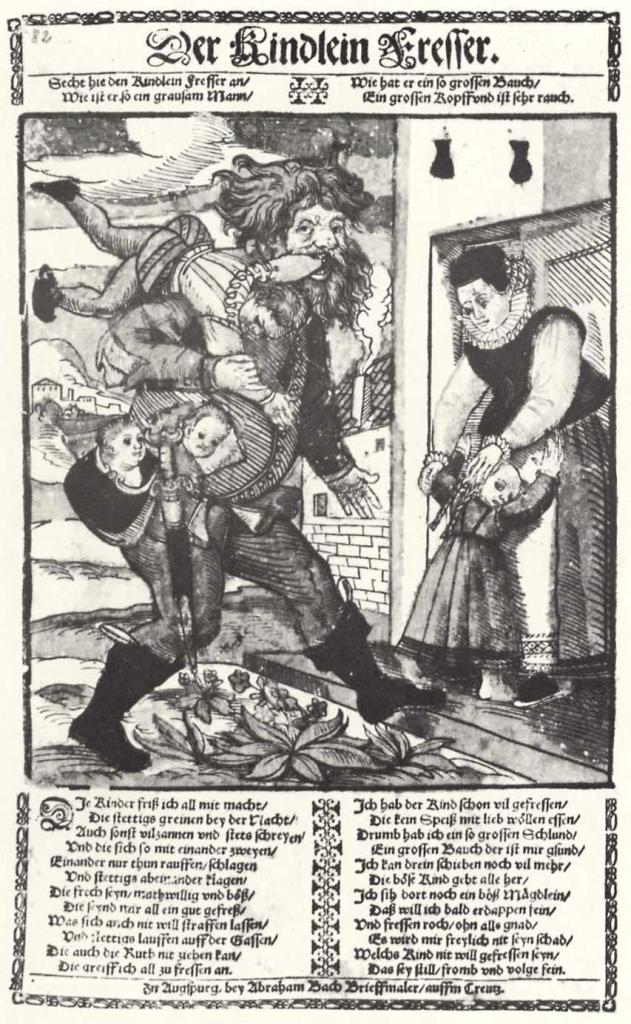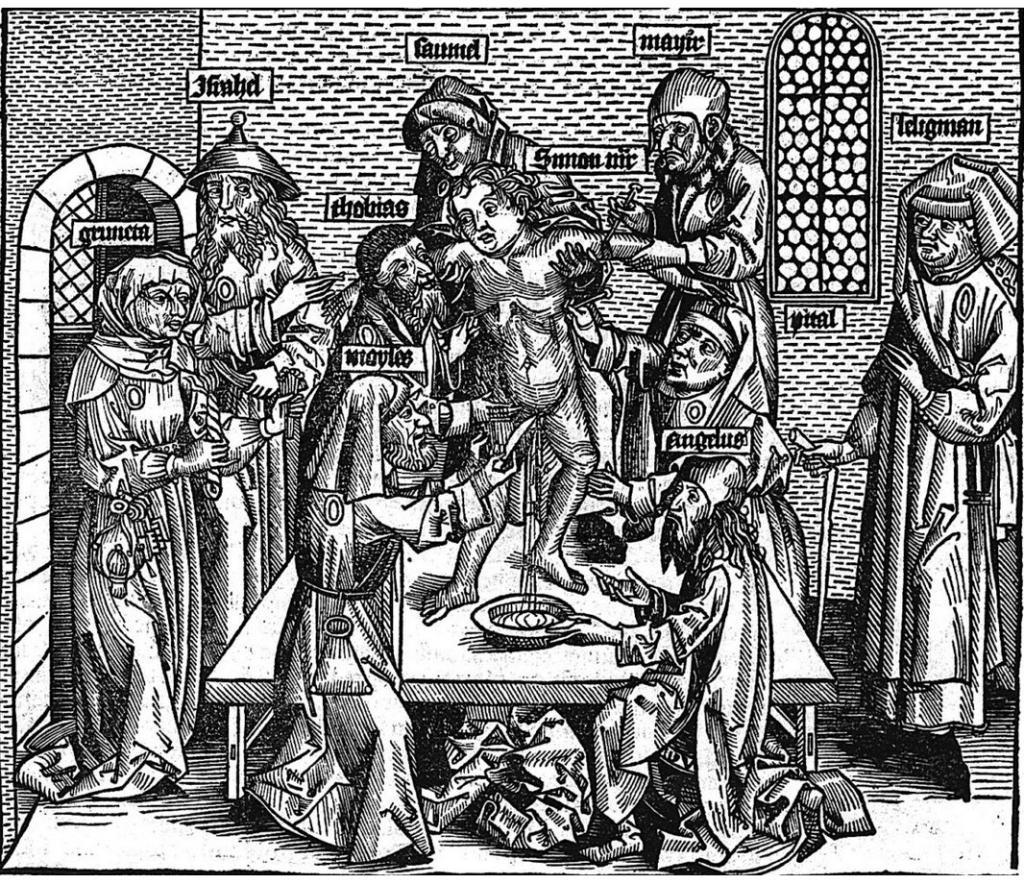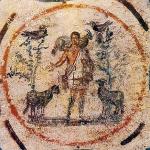This post has two related themes. It is about how the media systematically misunderstand and misreport religion, especially Christianity. It also concerns one of the most troubled and troubling verses in the New Testament.
By way of background, Jim Caviezel is a talented actor whose best-known role was as Jesus in Mel Gibson’s 2004 film The Passion of the Christ. Caviezel has espoused conspiracy theories related to QAnon, including charges about children being abducted, tortured, and killed by sinister elites. His latest film, Sound of Freedom, which deals with rescuing abducted and trafficked children, has enjoyed enormous commercial success, with a box office of $40 million after just a week of release, trashing the newest Indiana Jones. It has also sparked furious debate between media outlets of Right and Left. Its liberal critics complain that the film deals with themes from the QAnon playbook, although these are not overt. The film is at most “QAnon adjacent,” and even that is a stretch. The Right mocks liberals for the “conniption fits” they are having over Sound of Freedom.
Growing out of these debates, the British Daily Telegraph published a story by film critic Tim Robey, “Inside Jim Caviezel’s Strange Journey From Christ To QAnon Crusader.” This includes the following passage about QAnon ideas:
The theory suggests that children are being kidnapped and tortured to death so that their adrenal glands can be harvested to extract psychedelic drugs. You can trace the roots of this conviction centuries back, all the way to the anti-Semitic “blood libel” motif, which in fact reared its ugly head in The Passion of the Christ, in a line of Aramaic which Gibson stubbornly kept in his final cut (only removing the English subtitle).
Let me break this down:
1.Yes, that is a good description of the QAnon theory, which is nonsense. I have blogged on the idea here.
2.Yes, that theory assuredly traces back to the anti-Semitic “Blood Libel” motif. This involved very widespread (and totally false) stories that Jews regularly kidnapped and ritually killed Christian children for their sacred events, notably the Passover.
3.The sentence then, fairly literally, goes to Hell. Robey writes that the theory “in fact reared its ugly head in The Passion of the Christ, in a line of Aramaic which Gibson stubbornly kept in his final cut (only removing the English subtitle).” This is false, tendentious, and as it stands, close to incomprehensible. At no stage was the Blood Libel referred to in that film, even obliquely. Gibson faced zero pressure to remove it, because it was not there in the first place, not in any language. The theory never reared its head, ugly or otherwise. Again as it stands, the passage contextualizes Caviezel and Gibson together as part of a proto-QAnon conspiracy. It is guilt by association. It is calumny.
What on earth is this about? Here is the story. In the Crucifixion account, at Matthew 27.25, “all the people” – that is, the Jews of Jerusalem – acclaim the death sentence with the words “His blood is on us and on our children!” That is a deeply controversial line, which has often been used to justify anti-Semitism, and to inspire pogroms. It has been read as laying blood guilt on all Jews for the crucifixion of Christ, although as I will show, that is certainly not the only interpretation, nor the most likely. As a direct quote from the canonical gospels, the line duly featured in the original cut of Gibson’s film. However, early focus group responses were critical of the line’s inclusion, and he removed it from the subtitles, while keeping the Aramaic original.
The controversy thus involved the blood guilt idea, which has nothing whatever to do with the Blood Libel, with its connotations of the maltreatment and ritual murder of children. However, during the furor over the film in 2004, that critical distinction was lost. The sequence of arguments went like this:
-By quoting the Matthew verse, Gibson is using the blood guilt theory.
-That is a libel on Jews.
-Therefore Gibson’s actions can be rhetorically escalated to become a “blood libel”, lower case.
-Therefore Gibson is deploying the Blood Libel, capitalized, with all the associations that properly belong to that theory. Metaphor morphs into literal truth.
The British Guardian headlined “Gibson Film Ignores Vow To Remove Blood Libel.” The Washington Post reported “Gibson’s Blood Libel.” To see how very widespread such reporting became, just Google “Mel Gibson and Blood Libel.” Whatever you thought of the film, or of Gibson personally, that reporting was wholly wrong. As I say, Gibson never alluded to the Blood Libel, still less supported the theory, and anyone who reported thus has no idea what the term means.
But the notion has entered media mythology, and is still reverberating almost twenty years later. This is not just a case of one lone Telegraph journalist making a flub. He is drawing on the common currency of what journalists pass on to new generations over the campfire.
The Matthew verse evidently has nothing to do with the Blood Libel idea properly defined, which in its present anti-Semitic form emerged only some four centuries after the evangelist’s time, in the context of alleged Jewish misdeeds at Purim. It does have some precedent in the context of charges made against Christians in the late second and third centuries, but again that is long after Matthew’s time. Matthew could not even have known the Blood Libel.
So what is that verse actually about? In its origin, it certainly was not intended as a racial slur on Jews, as Matthew was writing in a church which had strong Jewish elements by descent and orientation. Virtually certainly, the evangelist himself was Jewish by origin. Some respectable scholars think the verse refers specifically to the destruction of Jerusalem in 70AD, which thus became a divine punishment for the killing of Jesus. That is possible.
My own approach is quite different, and suggests that Matthew is engaging in very conscious irony, which would have been obvious to his initial readers. In the Christian interpretations of the time, Jesus died a sacrificial death as the Paschal Lamb, whose blood was shed for his people. The notion of sprinkling sacrificial blood as a form of ritual purification occurs frequently in Leviticus, and several times in Hebrews. When the Jews announce that “His blood is on us and on our children!” they intend one thing, namely that they accept responsibility for the killing. In fact, they are unwittingly stating a view which is totally in accord with Christian ideas, namely that Jesus’s sacrificial blood will cover them as well, for their benefit if they choose to accept it. By killing Jesus, Jews are opening the door to their own purification and salvation.
Matthew is the only evangelist who tells the “His blood is on us” story, but John offers a very close parallel. Alarmed at Jesus’s successes, the Jewish leaders meet to plot a response (11.49-53):
Then one of them, named Caiaphas, who was high priest that year, spoke up, “You know nothing at all! You do not realize that it is better for you that one man die for the people than that the whole nation perish.” He did not say this on his own, but as high priest that year he prophesied that Jesus would die for the Jewish nation, and not only for that nation but also for the scattered children of God, to bring them together and make them one. So from that day on they plotted to take his life.
Dying for the nation… Taking his blood upon us. In this instance, John is kind enough to explicate the cryptic sentence. As in Matthew, Jewish leaders reportedly say something that sounds cynical and brutal, but with the deep irony that their actions will actually benefit the Jews as a whole, and the wider world – or at least, such is the Christian intent. In both instances, Jewish leaders become the mouthpieces for core Christian doctrines.
Through its horrific abuse through two millennia, Matthew’s verse has acquired quite toxic associations. Any Christian reading or preaching that verse has to be fully aware of them. But other more generous interpretations are possible. And nothing in what Matthew says has any connection, however tenuous, with the Blood Libel.
When I last looked, the Robey story did not include an apology or correction.















